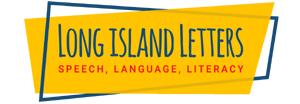LONG ISLAND FEEDING THERAPY FOR BABIES, TODDLERS, AND CHILDREN

LONG ISLAND FEEDING THERAPY FOR BABIES, TODDLERS, AND CHILDREN

Our Speech Pathologist Come to Your Long Island Home! | Best In-Person & Remote Private Pay Feeding Evaluation Therapy | Free Consultation and Meet & Greets With Our Staff
Our Speech Pathologist Come to Your Long Island Home! | Best In-Person & Remote Private Pay Feeding Evaluation Therapy | Free Consultation and Meet & Greets With Our Staff
LONG ISLAND (NASSAU AND SUFFOLK COUNTIES) NEIGHBORHOODS
We also travel to Hamptons (summer speech language therapy)
Our Speech-Language Pathologists and Therapists
We travel to you and we also offer remote services. Some of our speech-language pathologists are trained in the Orton Gillingham approach. Many of our speech-language pathologists are trained in literacy and offer support with decoding,
spelling and reading fluency services. Our speech-language pathologists and therapists work with babies, toddlers, school-age students, and adults with expertise in:
- Pronunciation/Enunciation
- Articulation
- Expressive Language Disorder
- Writing & Speaking Therapy
- Comprehension- Listening & Reading
- Listening Comprehension
- Auditory Processing
- Vocabulary
- Teens – Language Therapy
- Stuttering
- Feeding
- Oral Motor
- Voice
- AAC
- Adult Speech Therapy
- Public Speaking
- Accent Reduction Modification Speech Therapy
Our Speech-Language Pathologists and Therapists
We travel to you and we also offer remote services. Some of our speech-language pathologists are trained in the Orton Gillingham approach. Many of our speech-language pathologists are trained in literacy and offer support with decoding, spelling and reading fluency services. Our speech-language pathologists and therapists work with babies, toddlers, school-age students, and adults with expertise in:
Eating is a primary human activity needed for survival. But for very young children, feeding can be a complicated task that needs complex coordination of different oral motor skills—biting, chewing, and finally, swallowing. Most babies and toddlers learn instinctively over time how to suck, bite, chew, and swallow food and how to drink from a nipple, straw, and cup. But there are some who demonstrate difficulty learning these oral motor skills, interfering with their feeding development.
Young children begin their feeding journey by first learning how to suck liquids then chew single grain cereals or pureed food. When introducing solids, it is a messy process that needs plenty of practice and monitoring from parents. Certain difficulties like gagging, pushing food back, spills, and trouble with swallowing are normal and correct themselves over time.
Likewise, children with a feeding delay or disorder, they may exhibit a difficulty transitioning from one food type to the next. These challenges will persist as they get older if not addressed or given adequate feeding therapy.
Read about Feeding Developmental Milestones.
Pediatric feeding disorders are characterized by challenges in oral intake that are not typical for a child’s age. It often involves delays and difficulties in eating, drinking, chewing, sucking, and swallowing as well as food aversions, food refusal, and food and texture selectivity. Swallowing problems or dysphagia refers to problems in one or more areas of the three phases of swallowing. These phases or stages are:
- Oral phase – The sucking, chewing, and moving of food or liquid into the throat. Feeding is part of the oral phase.
- Pharyngeal phase – The squeezing of food down the throat, which begins the swallowing action.
- Esophageal phase – The opening and closing of the esophagus as it squeezes food down to the stomach.
Feeding disorders can occur alongside developmental delays or medical conditions, such as autism spectrum disorder, Down syndrome, cerebral palsy, or respiratory disorders.
About Infant Feeding Evaluations
Pediatric feeding disorders are characterized by challenges in oral intake that are not typical for a child’s age. It often involves delays and difficulties in eating, drinking, chewing, sucking, and swallowing as well as food aversions, food refusal, and food and texture selectivity. Swallowing problems or dysphagia refers to problems in one or more areas of the three phases of swallowing. These phases or stages are:
- Oral phase – The sucking, chewing and moving of food or liquid into the throat. Feeding is part of the oral phase.
- Pharyngeal phase – The squeezing of food down the throat, which begins the swallowing action.
- Esophageal phase – The opening and closing of the esophagus as it squeezes food down to the stomach.
- A feeding disorder can occur alongside developmental delays or medical conditions, such as autism spectrum disorder, Down syndrome, cerebral palsy, or respiratory disorders.
- Young children with feeding difficulties typically demonstrate a delay in or difficulty swallowing, sucking, chewing, and display food aversions, food refusal, texture selectivity, and food selectivity. Many factors can cause a young child to become a picky eater.
- Feeding therapy involves improving the child’s oral motor and underlying feeding skills and eating habits. We assess the child’s sucking, swallowing, chewing patterns, diet, behavior, and the home environment during meal time. Once we pinpoint the underlying problem(s), we create a family treatment plan. Some children require additional one-on-one feeding therapy, and we demonstrate to the parent how to tackle their child’s feeding or eating delay.
Causes of Feeding Disorders
Several factors can cause feeding and swallowing disorders. Infants who were hospitalized at birth and received tracheotomy for an extended time will often have difficulties adopting proper feeding patterns. In some cases, even children with no known conditions or relevant medical histories can develop a fear of food.
Other possible factors that could lead to feeding and swallowing disorders include:
- cerebral palsy, meningitis, and other nervous system disorders
- autism
- stomach problems, such as reflux
- premature or low birth weight
- heart disease
- cleft lip or palate
- asthma or other respiratory problems
- muscle weakness in the face and neck and other head or neck problems
- medication that causes sleepiness or loss of appetite
- sensory issues
- behavioral problems
Signs and Symptoms of Feeding and Swallowing Disorders
Feeding and swallowing disorders in children are often difficult to spot at first. Most of the time, children who struggle during mealtimes are simply assumed to be picky eaters. And while this is true for many, there are other signs and symptoms that family members can consider to distinguish between a child who is a picky eater or one with a feeding problem. These include:
- back arching and stiffening during meal times
- crying, fussing, or falling asleep when feeding
- throwing tantrums when presented with new or unfamiliar foods
- trouble breathing while eating or drinking
- coughing, choking, or gagging during meals
- preference for specific textures of food (crunch or soft food) or aversion to a particular food group
- taking a long time to eat or simply refusing
- struggling to chew or swallow
- excessive drooling during meals, has liquid come out of mouth or nose, or gets stuffy
- frequently spitting or throwing up
- not gaining weight or growing
- eating less than 20 types of foods
- refusing to eat meals with the family or a group
Meanwhile, a child who is a picky eater may sometimes exhibit similar behaviors as someone with a feeding disorder. However, there are key differences to monitor. Typical signs of a picky eater are:
- eats a limited variety of foods (around 30 types)
- consumes enough calories daily for growth and nutrition
- often loses interest in a particular food but will accept it again after a certain period
- accepts and eats at least one food from all food groups
- allows new or unfamiliar food on the plate even if they do not touch or eat it
How to Treat Feeding Disorders
Treatment for feeding or swallowing disorders starts with getting a comprehensive check on the child’s general health. A pediatrician can assess the child’s growth and weight based on what is appropriate for his or her age. Children must also be checked for any condition that interferes with feeding skills. If your child’s doctor determines that there is cause for concern, a speech-language pathologist (SLP) may be consulted to conduct an assessment and provide a diagnosis.
During the evaluation, the SLP will:
- ask questions about the child’s medical history and overall development
- observe how the child moves his or her mouth, tongue, and jaw when eating and drinking various foods and liquids.
- watch how the child eats and take note of the way he or she picks up food, chews, swallows, and drinks
- observe the child’s behavior during meals
- consider the parent child interactions
- assess mealtime routines
- conduct additional special tests, if necessary
Once a diagnosis is made, the SLP may work as part of a team to design a feeding therapy plan for the child. This team may include an occupational or physical therapist, a dietitian or nutritionist, a physician or nurse, or a developmental specialist.
As part of the multidisciplinary team, the SLP can help your child address the following issues:
- improving the child’s tongue and jaw movement
- Improving lateral chewing
- introducing new foods and drinks
- improving the way the child sucks from a bottle or drinks from a cup
- adjusting textures of food and thickness of liquids to make swallowing easier
- encouraging good behavior during meals, such as increased focus at meal times, not refusing food, and not fussing
- addressing the child’s sensory issues (how the food feels in his or her mouth or hands)
The SOS Approach to Feeding
-
Serving a piece or spoonful of every food offered on the child’s plate. Whether the child eats it or not, the goal is to familiarize them with the food’s texture, smell, color, and where it comes from.
-
Including at least one food that the child is guaranteed to eat in order to expose the child to new foods while still ensuring they are eating the right amount of food.
-
Parents modeling good eating habits and describing the food and its taste.
-
Praising the child’s attempt to eat or explore new foods but taking care to not let the child be the sole focus of the meal.
At Brooklyn Letters, our feeding therapy involves improving the underlying feeding skills and eating habits of babies, toddlers, and preschoolers. We assess the child’s sucking, swallowing, chewing patterns, diet, behavior, and the home environment during meal time time. Once we pinpoint the underlying problem(s), we create a family treatment plan. Some children require additional one-on-one feeding therapy. We demonstrate to the parent how to tackle their child s feeding and/or eating delay.
Read about Early Childhood Developmental Milestones.
Manhattan, Connecticut, Westchester, & New Jersey Rates
Feeding Therapy
-
$150-$190 for 60 minutes
-
$130-$165 for 45 minutes
-
$110-$130 for 30 minutes
Brooklyn, Queens, Staten Island, & Long Island Rates
Feeding Therapy
-
$145-$180 Per Hour
-
$120-$155 for 45 minutes
-
$100-$120 for 30 minutes (online only)
Feeding Evaluations
-
$350 – $600 for Feeding (any age) – evaluations performed by infant feeding specialists when warranted (see below for more information)
MEET OUR LONG ISLAND FEEDING THERAPISTS WHO TRAVEL TO YOUR HOME

Nicole S.
M.A., CCC-SLP, TSSLD, Speech Language Pathologist

Shoshana
Master of Science, Certificate of Clinical Competence (CCC-SLP)

Susan M.
M.S., CCC-SLP, Speech Language Therapist

Danielle
M.S., CCC-SLP, TSSLD, Speech Language Pathologist

Nicholas
M.S., CCC-SLP, TSSLD, Speech Language Pathologist

Ewa D.
M.A., CCC-SLP, Speech Language Pathologist
FREE CONSULTATION!!!
Call: (347) 394-3485,
Text: (917) 426-8880
Email: [email protected]
(we respond to email right away!)


















